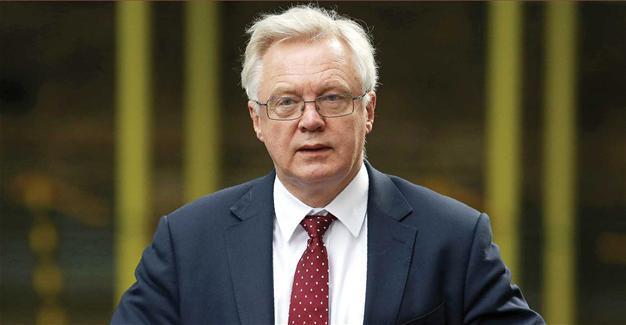London asks for interim customs deal with EU, new trade accords
 Britain has said it wants an interim customs agreement with the European Union after Brexit to allow the freest possible trade of goods, but that it will also seek the right to negotiate other trade deals -- a possible sticking point in the talks.
Britain has said it wants an interim customs agreement with the European Union after Brexit to allow the freest possible trade of goods, but that it will also seek the right to negotiate other trade deals -- a possible sticking point in the talks. According to excerpts of a government document to be published yesterday setting out Britain’s strategy, the government will say one option to minimize friction when it leaves the bloc in March 2019 would be to introduce a temporary customs union, which should be “time-limited.”
That would provide certainty for businesses, the government said, aiming to address a main concern of companies who fear the introduction of customs checks will cause expensive delays.
“Ministers will announce an intention to seek an ‘interim’ period with the EU of close association with the customs union that would allow for a smooth and orderly transfer to the new regime,” the government said in a statement ahead of publication of the first in a series of “future partnership papers.”
“One possible approach would be a temporary customs union between the U.K. and the EU ... During this interim period, which will be negotiated with Brussels, Britain will look to negotiate bold new trade relationships around the world.”
Turkey model?
Businesses welcomed the proposals, but the Confederation of British Industry also warned the government that “the clock is ticking and what matters now is giving companies the confidence to continue investing as quickly as possible.”
The EU said it would study the proposals carefully but it would only address the proposal for an implementation period once sufficient progress had been made on Britain’s withdrawal.
The EU wants to make progress on several key issues by October, including the financial bill for Britain’s exit, but Brexit minister David Davis told the BBC there would not be an agreed figure on the financial settlement by then.
Countries that are part of the EU’s customs union are not allowed to negotiate bilateral trade deals, and May’s government has said Brexit means Britain must leave the customs union.
But Turkey, while not an EU member, is part of a separate customs union for industrial goods and can still negotiate bilateral trade deals. It was not clear whether Britain was pursuing a similar arrangement to Turkey.
















